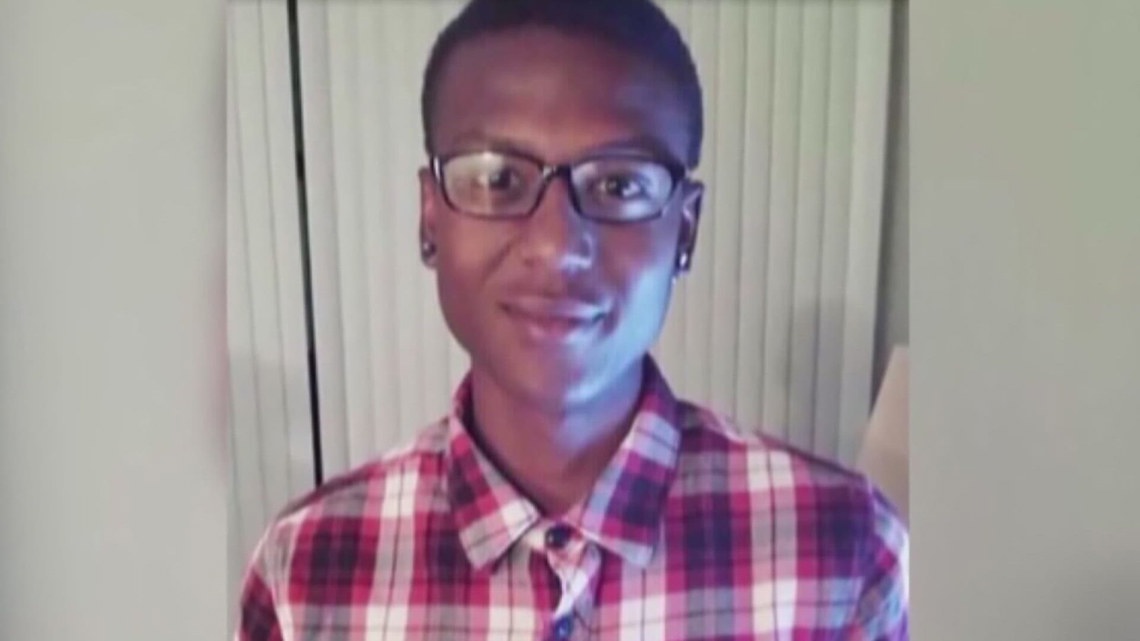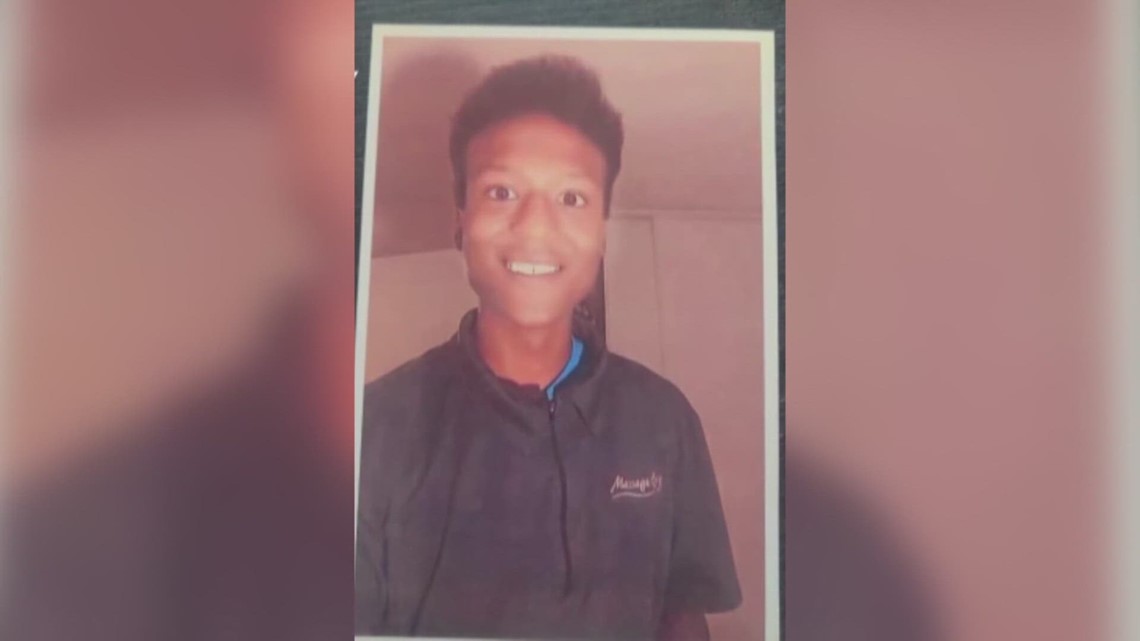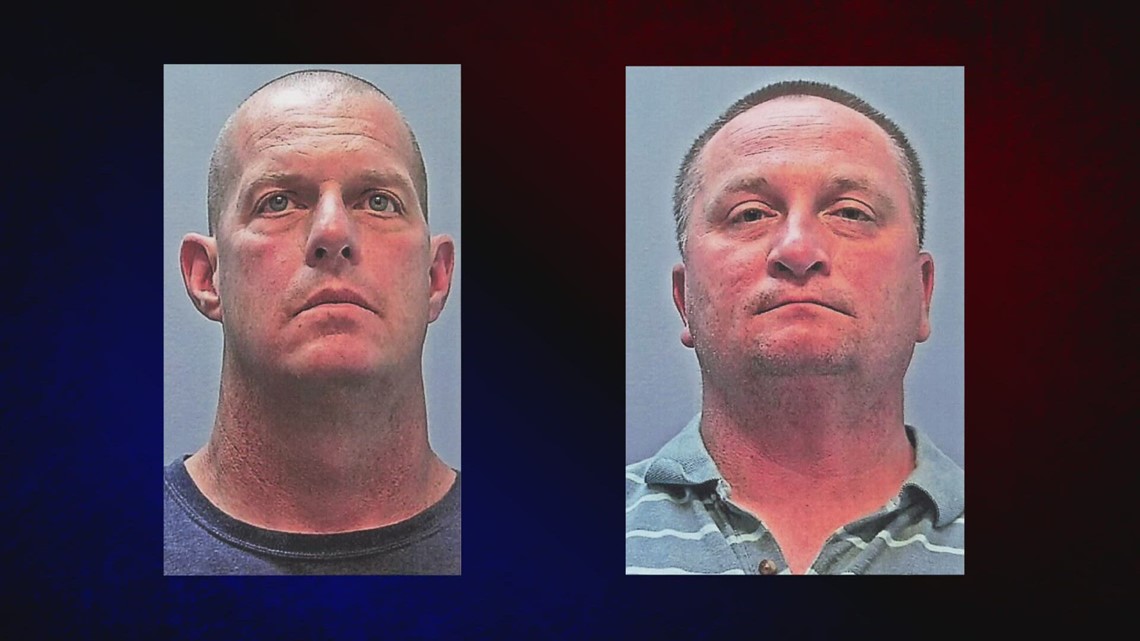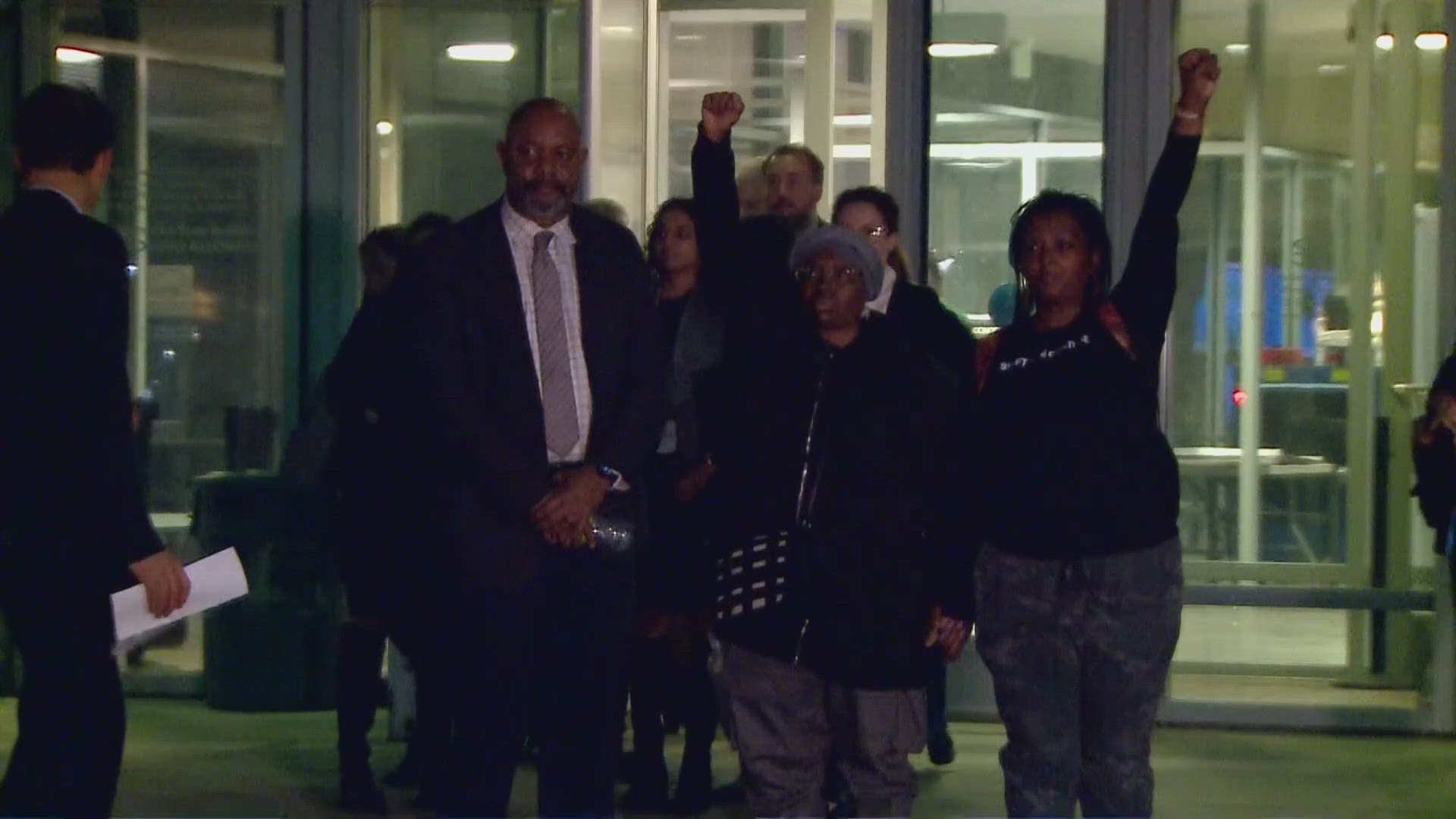AURORA, Colo. — After weeks of testimony, an Adams County jury reached a unanimous verdict in the trial of two Aurora Fire Rescue paramedics charged in the 2019 death of Elijah McClain.
Jeremy Cooper and Peter Cichuniec were both found guilty of criminally negligent homicide by a jury Friday.
The jury found Cooper not guilty of second-degree assault with intent to cause bodily harm and not guilty of second-degree assault for administering drugs without consent. The jury found Cichuniec guilty of second-degree assault for administering drugs without consent and acquitted him of second-degree assault with intent to cause bodily harm.
Cooper faces up to six years in prison, and Cichuniec faces up to 16 years. Their sentencings are scheduled for March 1 at 1:30 p.m.
The trial for Cooper and Cichuniec began on Nov. 29. Jurors began their deliberations on Dec. 21. Both men are charged with reckless manslaughter and multiple counts of assault. If convicted on all counts, sentencing ranges from probation to a maximum of 16 years.
McClain was first contacted by three Aurora officers on Aug. 24, 2019, after someone called 911 about a man who was "suspicious" and wearing a ski mask. Within seconds of contacting McClain, the first officer grabbed him, and a struggle ensued. McClain was forcibly taken to the ground and placed in a carotid hold, which cut off oxygen to his brain for a short time.
He was then handcuffed and restrained on the ground for roughly 10 minutes before being injected with the ketamine. His heart stopped and he later died.


Prosecutors contend that neither Cooper nor Cichuniec assessed McClain before concluding that he was suffering from excited delirium, a condition which, to believers, is life-threatening and is marked by severe agitation and imperviousness to pain. Under the protocols, that prompted them to inject McClain with ketamine.
"You can learn so much from listening to a patient breathe from feeling their pulse, from touching their skin. The defendants didn't do a single one of these things," prosecutor Shannon Stevenson said in her closing argument.
The defense insisted they had done a visual assessment - and said those things were not necessary.
"Can you do an assessment without putting your hands on somebody else? I think that's been proven beyond a reasonable doubt," said Michael Pellow, Cooper's attorney, in his closing. "We saw it. We saw it in action. They assessed Mr. McClain and saw that he was breathing. And he appeared here to be breathing too fast."
RELATED: Medical expert tells jury Elijah McClain got too much ketamine, but dose would not have been fatal
The medics gave McClain 500 milligrams of the sedative, which was the largest dose they were allowed to administer and one that was meant for someone weighing roughly 80 pounds more than McClain. Based on the weight-based guidelines within Aurora Fire Rescue protocols, that was an overdose. However, at least one expert testified that it would not have been a fatal dose.


Prosecutors said that the paramedics concluded McClain needed that ketamine within minutes of arriving at the scene but had plenty of time to evaluate or re-assess him before administering the drug because they had to wait for an ambulance to arrive.
"If you're on a protocol and the condition of your patient changes, then you change what you're doing," Stevenson said. "You're not a robot. These are trained professionals with judgment to exercise. And of course, you don't sedate somebody who is barely moving."
The original autopsy report from Adams County Coroner's Office indicated that the cause and manner of McClain's death was "undetermined." However, Dr. Stephen Cina later released an amended report after he said he was able to review additional body-worn camera footage. That report said that McClain's cause of death was "complications from ketamine administration following forcible restraint." Cina still listed his manner of death as "undetermined."
A forensic pathologist who testified for the defense told jurors that in his opinion, McClain died from a lack of oxygen to the brain - and said his manner of death was an accident. In their closing, the defense argued that prosecutors had failed to prove what caused McClain's death.
"No new medical evidence. Dr. Cina says he was able to watch what amounts to about 25 seconds of body camera footage of Mr. McClain," said David Goddard, Cichuniec's attorney. "Dr. Cina reaches the conclusion, 'Well, he doesn't look very good there. I think those are agonal breaths [gasps]. It happened after the ketamine administration, so it must be ketamine.'"
Their defense attorney argued that the men acted within the protocols and standards of care for Aurora Fire, and placed blame on the officers for McClain's death.
They pointed out that when Cooper leaned down in an attempt to help, an officer picked McClain up and slammed him to the ground. He testified that caused him to step back.
"When I saw that, it was pretty shocking, so I told the officers, OK let’s just leave him here. Leave him there. That was my attempt to kind of de-escalate things," Cooper said.
"Obviously, now they’re using kind of violent control methods. I didn’t want that to happen anymore, because that’s now harming Elijah and that makes my job with him as my patient more difficult, so I didn’t want any more injuries or any more of that type of behavior to happen."
Their attorney argued that the paramedics were met with resistance from officers and that they were never told McClain had complained he couldn't breathe or that he had lost consciousness. Instead, the officers relayed to Cooper and Cichuniec that McClain was "on something" had "super-human strength" and had nearly done a pushup with three officers on his back.
“There has been a violent altercation between the police and Mr. McClain and it seems like it might still be going on," Pellow said. "They have to walk the line. Don't make that situation worse. You have a patient that is agitated, that may be creating, in fact, lactic acidosis through struggling, may have already created that situation in himself and you can't make it worse. "


Prosecutors pointed out that while officers may not have told them certain things, they did not ask any questions. If they had, prosecutors argued, they might have determined that McClain was suffering from a reversible medical condition.
“There was no indication that Elijah needed ketamine and you've heard multiple experts say that giving it was for no medical purpose. This was not lawful medical treatment," Stevenson said. "And then finally, we have to show that it was done without consent. The defendants here never did one thing to try to obtain Elijah McClain’s consent to any treatment, and no reasonable person would consent to an overdose of a drug that they did not need.”
The paramedics are the last two of the five men indicted in McClain's death to go to trial. In the first trial, a jury returned a split verdict for Aurora officers Randy Roedema and Jason Rosenblatt. Roedema was found guilty of criminally negligent homicide and third-degree assault and will be sentenced in January. That same jury acquitted Rosenblatt of all charges. Officer Nathan Woodyard was acquitted in a separate trial.
SUGGESTED VIDEOS: Elijah McClain death

